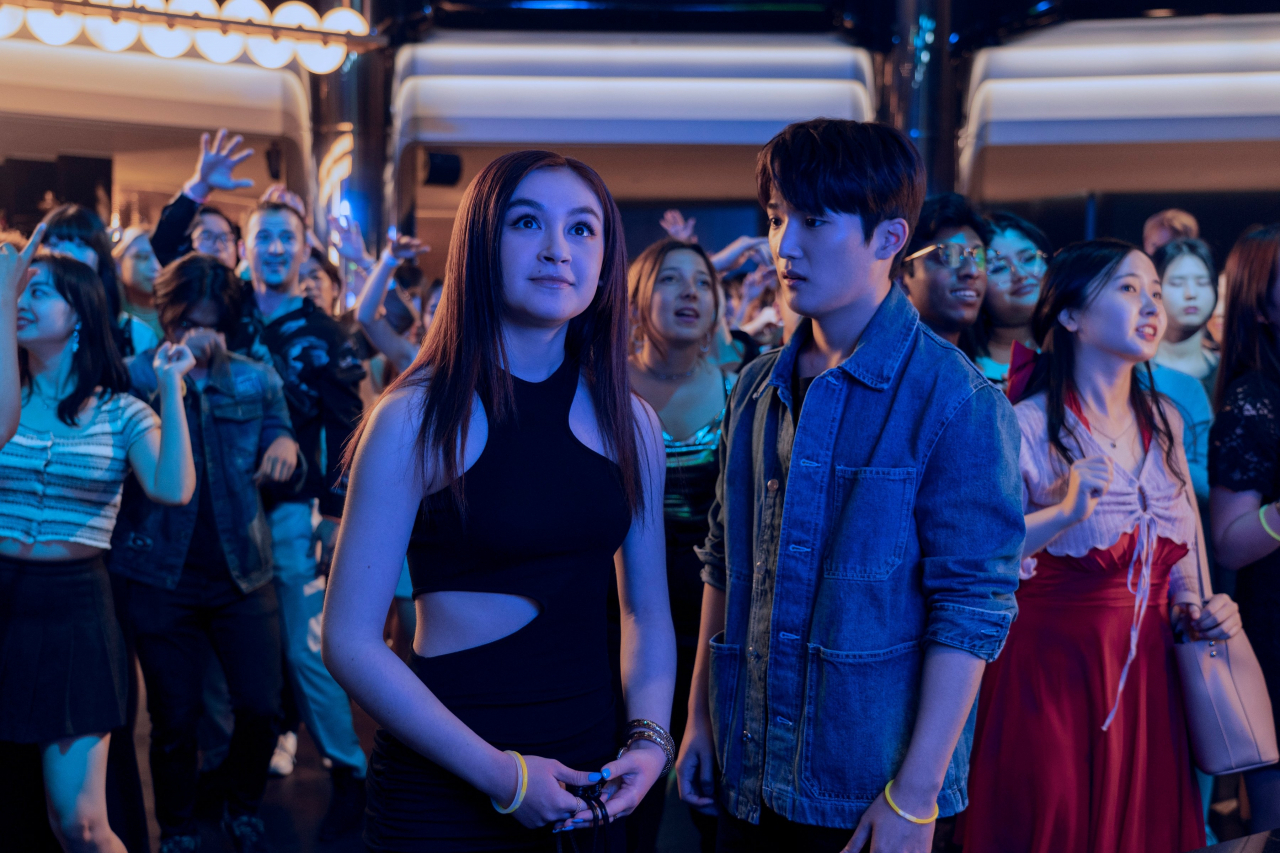[Reporter’s Notebook] Why is 'XO, Kitty' struggling to win Korean viewers over?
By Lee Si-jinPublished : May 30, 2023 - 14:31

After looking up to the West for a long time, many Koreans are perceptive to what Westerners think about the country and its people and yearn for their acknowledgement.
Stories about Korean culture being featured in overseas projects -- mostly produced in the US -- regularly make local headlines.
Back in 2017, people in Busan shared their excitement about how their port city would be shown in Marvel’s 2018-action flick “Black Panther” as soon as the news about the production team's arrival in South Korea came out.
K-pop fans shouted for joy as their beloved girl group Twice’s “Knock Knock” played in the US animation film “Spies in Disguise” (2019), lauding the artists as being world class.
While showing a bit of Korean culture does not necessarily lead to the project’s success here, it does draw the attention of the Korean audience.
This leads us to the mystery of Netflix’s recent romance series “XO, Kitty” and its struggle to find its footing in Korea.
“XO, Kitty” has everything it needs to make the series go viral -- a star-studded cast of Koreans, the country’s popular tourist attractions, K-pop music and Korean traditional culture.
After its release on May 18, the series soared to the No. 1 slot in more than 50 countries. In Korea, however, it barely scraped the last spot on Korean Netflix's top 10 chart.
The US series about South Korea did not receive much attention here and fell off the chart on May 27.
So, why did “XO, Kitty” tank in Korea?
With mega-hit series like “Squid Game” (2021), “Extraordinary Attorney Woo” (2022) and “The Glory” (2022), which were enjoyed by viewers across the globe, Korean culture seems to have become something of a phenomenon around the world.
The strength of Korean content may have changed Koreans' responses to Korea-themed overseas projects. Gone is the unconditional welcome and love for depictions of Korea in foreign productions.
Also, coming-of-age teen romances are an outdated genre.
Korean viewers have seen enough stories featuring a bright female lead from a poor (or ordinary) background falling in love with a prince-like male lead, like in “Boys over Flowers” (2009), “The Heirs” (2013), “Reply 1994” (2013) and more.
Such Cinderella stories were once considered the key to a drama's success. But things have changed.
Blood-soaked revenge thrillers and action series are the latest Korean drama trend, replacing the romance dramas that once reigned supreme.
Instead of being men’s sidekicks or lovers, women characters are now strong, charismatic and independent, having the power to captivate viewers on their own.
A teenage love story is certainly interesting, but a female lead breaking stereotypes about womanhood resonates more with drama fans.
This fact is not isolated to the case of “XO, Kitty.”
Some coming-of-age romance shows by Korean broadcasters and streamers, such as “School 2021” (2021), “Rookie Cops” (2022), “Cheer Up” (2022), “Oasis” and “All That We Loved" came and went without anyone noticing them.
Cable channel tvN’s “Twenty Five Twenty One” (2022) is considered the only drama to have won the hearts of viewers with a teen romance story in several years. And that drama probably owes much of its success to the fiercely independent lead female characters.






![[From the Scene] Monks, Buddhists hail return of remains of Buddhas](http://res.heraldm.com/phpwas/restmb_idxmake.php?idx=644&simg=/content/image/2024/04/19/20240419050617_0.jpg&u=20240419175937)





![[Graphic News] French bulldog most popular breed in US, Maltese most popular in Korea](http://res.heraldm.com/phpwas/restmb_idxmake.php?idx=644&simg=/content/image/2024/04/18/20240418050864_0.gif&u=)



![[From the Scene] Monks, Buddhists hail return of remains of Buddhas](http://res.heraldm.com/phpwas/restmb_idxmake.php?idx=652&simg=/content/image/2024/04/19/20240419050617_0.jpg&u=20240419175937)

![[KH Explains] Hyundai's full hybrid edge to pay off amid slow transition to pure EVs](http://res.heraldm.com/phpwas/restmb_idxmake.php?idx=652&simg=/content/image/2024/04/18/20240418050645_0.jpg&u=20240419100350)

![[Today’s K-pop] Illit drops debut single remix](http://res.heraldm.com/phpwas/restmb_idxmake.php?idx=642&simg=/content/image/2024/04/19/20240419050612_0.jpg&u=)